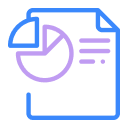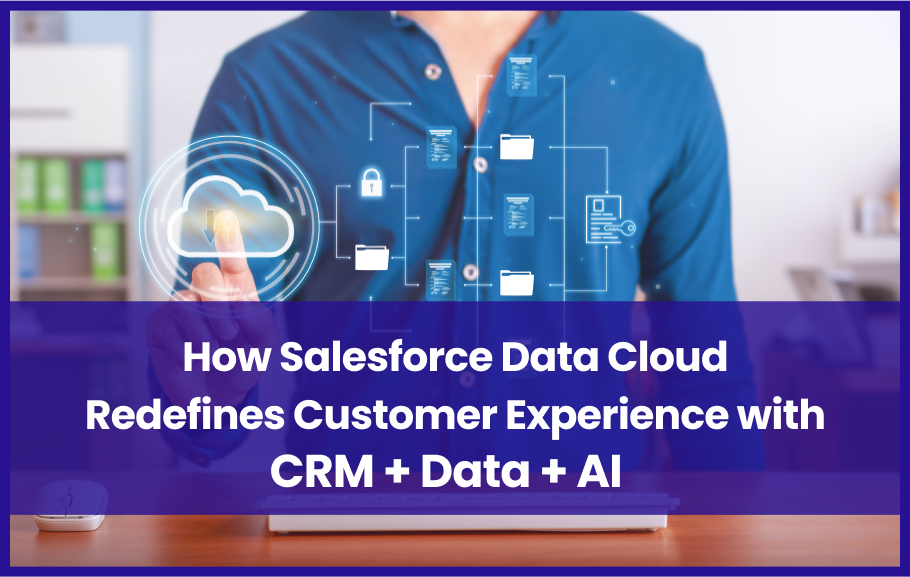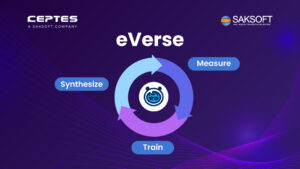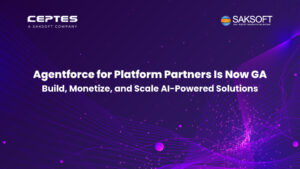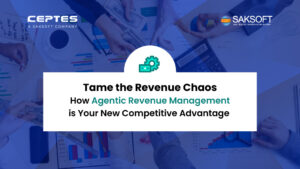The Evolution of Customer Engagement
Customer expectations have evolved dramatically. In today’s hyper-connected world, businesses must not only understand customer needs but also anticipate them. The key lies in harnessing data effectively, breaking silos, and creating seamless, meaningful experiences. Salesforce Data Cloud emerges as the cornerstone for this transformation, combining the power of CRM, Data, and AI to redefine customer engagement.
The CRM+Data+AI Trinity: A Game Changer
Trend 1: Seamless Integration as a Strategic Growth Pillar
 Integrations are the backbone of CRM+Data+AI. Salesforce’s MuleSoft provides out-of-the-box connectors to all Salesforce products and pre-built APIs for popular third-party systems, ensuring smooth data flow. This capability empowers businesses to:
Integrations are the backbone of CRM+Data+AI. Salesforce’s MuleSoft provides out-of-the-box connectors to all Salesforce products and pre-built APIs for popular third-party systems, ensuring smooth data flow. This capability empowers businesses to:
1. Integrate data from multiple sources.
2. Maintain consistency across customer touchpoints.
3. Scale operations without the complexities of custom integrations.
Trend 2: The Data Cloud Revolution
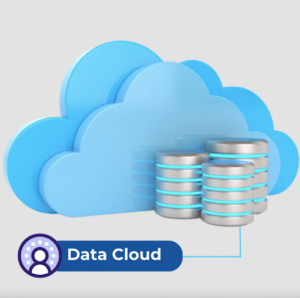 Salesforce Data Cloud (DC) is becoming indispensable for businesses aiming to enhance customer experiences. Here’s why:
Salesforce Data Cloud (DC) is becoming indispensable for businesses aiming to enhance customer experiences. Here’s why:
- Prerequisite for Generative AI (Gen AI): DC stores vital audit trails, enabling businesses to leverage generative AI.
- BYOM (Bring Your Own Model): Businesses can train predictive and generative AI models using DC as the foundation.
- Marketing Cloud Engine: DC acts as a robust segmentation engine, enabling targeted and personalized campaigns.
- AI Grounding: It provides accurate data to Salesforce Core, improving decision-making.
- Analytics Cloud Optimization: Data model objects in DC can be directly used in Analytics Cloud, overcoming common limitations.
Trend 3: From System of Records to System of Engagement
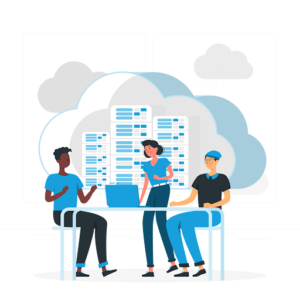
Data Cloud is transitioning into a system of referenced records, with Salesforce Core serving as the system of engagement. Businesses now utilize DC model objects for:
1. Automations.
2. Page layouts.
3. Standard reporting.
This shift allows for actionable insights and improved operational efficiency.
Trend 4: Strengthening Generative AI Capabilities

Salesforce is advancing its AI offerings with:
- New generative AI agents tailored for diverse business needs.
- Transparent, outcome-based licensing models that align with closed cases or deals.
These updates promise businesses better scalability and measurable ROI.
Breaking Down Silos: Unified Customer Data
Fragmented data has long been a challenge for businesses. Salesforce Data Cloud solves this by harmonizing data across platforms without duplication. Its Zero-Copy Integration ensures:
- Cost efficiency by eliminating ETL processes.
- Unified customer profiles for consistent engagement.
A North American insurance carrier is a prime example. By adopting Data Cloud, the company unified fragmented lead data, reduced duplication, and increased lead conversion rates by 2.4x.
Hyper-Personalized Experiences: The AI Advantage
Modern customers crave personalization. With Salesforce Data Cloud, businesses can:
- Leverage Generative AI: Create detailed customer profiles for dynamic recommendations and tailored interactions.
- Enable Intelligent Segmentation: Design precise campaigns targeting specific customer segments.
- Automate Journeys: Provide timely and relevant customer nudges.
For instance, a global retailer used Data Cloud to segment customer data, boosting sales by 20% through targeted marketing campaigns.
Data as Currency: Building Trust with Customers
Customers are increasingly aware of the value of their data. Salesforce Data Cloud facilitates a transparent and trustworthy value exchange by:
- Clearly communicating how data is used.
- Delivering tangible benefits such as faster service and personalized connected customer experiences.
Metrics That Matter: From Internal KPIs to Customer-Centric Metrics
Salesforce Data Cloud encourages a shift in focus from traditional metrics to ones that matter to customers:
- Resolution Times: How quickly customer issues are resolved.
- Non-Linear Journeys: Tracking complex customer paths across multiple touchpoints.
This customer-first approach helps businesses deliver value at every interaction.
The Future of Salesforce Data Cloud: Trends to Watch
1. Enhanced AI Integration:
Salesforce is revolutionizing AI integration with the latest innovation Agentforce, seamlessly powered by Data Cloud. Agentforce combines generative AI with unified customer data to deliver hyper-personalized experiences. Agentforce streamlines service and engagement by automating recommendations, creating tailored content, and optimizing interactions. With BYOM support, businesses can integrate custom AI models for unique insights, driving higher conversions and improved customer satisfaction.
2. Outcome-Based Licensing:
TSalesforce Data Cloud offers flexible licensing models designed to cater to the diverse needs of businesses while ensuring they get maximum value from their data investments. Additionally, Data Cloud’s comprehensive capabilities, including seamless integration with Agentforce, provide a unified platform for customer insights, data management, and automation, optimizing both operational efficiency and customer experiences.
3. Deeper Ecosystem Integration:
Enhanced Ecosystem Connectivity enables businesses to seamlessly integrate Data Cloud with tools like Marketing Cloud and Analytics Cloud (including Tableau) using pre-built connectors and integrations. This empowers organizations to create personalized, data-driven marketing campaigns based on real-time insights from Marketing Cloud, while leveraging the full power of Analytics Cloud and Tableau for advanced data analysis and reporting. By aligning and unifying customer data across the Salesforce ecosystem, businesses can optimize marketing, sales, and strategic decisions, driving improved engagement, operational efficiency, and measurable business outcomes.
Elevate Your Business with Salesforce Data Cloud
Are you ready to transform your customer experiences? Salesforce Data Cloud, combined with CRM and AI, empowers your business with the tools to succeed. Let CEPTES guide you on this journey—harness the power of data for hyper-personalized, impactful customer interactions.
FAQ:
1. Can Data Cloud integrate with third-party tools?
2. How does Data Cloud support AI models?
3. Is Data Cloud suitable for small businesses?
4. What industries benefit most from Salesforce Data Cloud?

Nilamani Das
Nilamani is a thought leader who champions the integration of AI, Data, CRM and Trust to craft impactful marketing strategies. He carries 25+ years of expertise in the technology industry with expertise in Go-to-Market Strategy, Marketing, Digital Transformation, Vision Development and Business Innovation.










